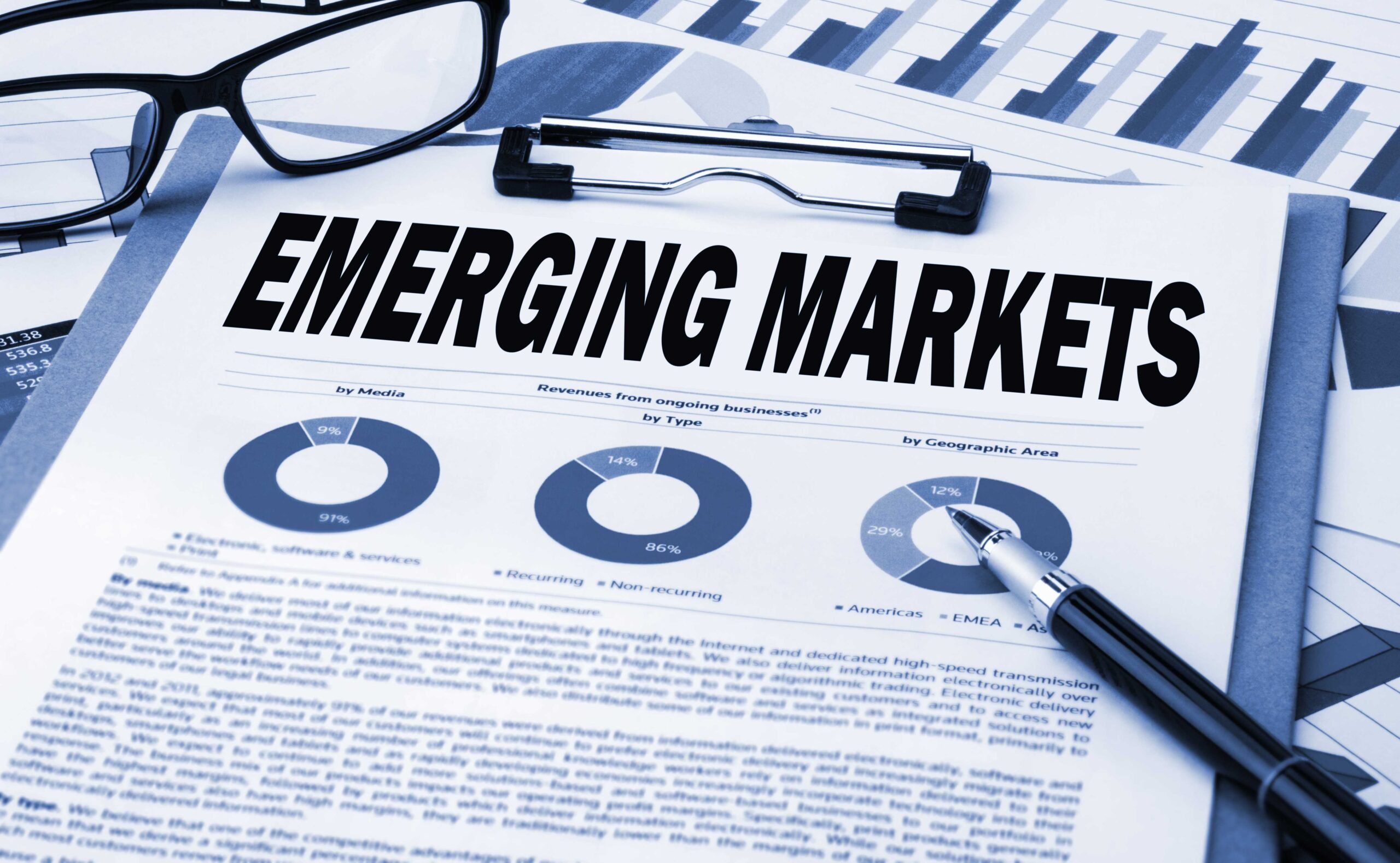
We often highlight the importance of diversification in any investment strategy, and one element of a well-diversified approach is to ensure that the portfolio contains allocations to different geographies. Whilst most will allocate funds to developed market equities, such as those in the UK, developed Europe (e.g. Germany, France, Spain) North America (US and Canada) and developed Asia-Pacific countries (such as Japan and Australia), introducing an allocation to emerging markets can help spread risk further, as returns from these markets do not necessarily correlate with their developed counterparts.
Economies in transition
Emerging market economies are those that typically display rapid growth and industrialisation, but do not yet meet the criteria to be fully developed. Emerging markets also generally have weaker infrastructure, and their population normally earn lower incomes than those in developed nations.
An emerging market is, however, not necessarily a small market. Two of the largest emerging market economies, China and India, are amongst the World’s most populous countries. Other notable emerging market economies, such as Brazil, Mexico, Indonesia, Saudi Arabia and Poland, are also of considerable size and are rapidly moving towards becoming developed economic nations. This transition holds the key to the attractiveness of emerging markets. Many countries considered to be emerging markets are in the early stages of their development and the opportunities afforded through emerging markets can lead to better long-term growth prospects, relative to more mature developed markets.
Attractions of emerging markets
One area of emerging market growth is infrastructure. As a nation develops and experiences economic growth, the need to provide critical transport, utilities and connected networks can provide the springboard for further expansion. One particular growth area is sustainability and the increased focus on renewable and clean energy.
Another positive for emerging markets is the increasing wealth amongst the population. As a greater number of citizens become middle-class, they are more able to consume goods and services. This new-found wealth can help propel growth and business opportunity.
Natural resources will be another potential driver of growth in the coming years. Demand for industrial metals, such as Copper, Aluminium and Nickel – which are all heavily used in clean energy solutions – is likely to remain high and a number of emerging market countries dominate global production of these raw materials.
Many emerging market economies have a younger population than their developed counterparts, and this can assist in the adoption of newer technology at a faster pace. Whilst technological innovation may be well-established in developed markets, emerging market economies provide exciting growth opportunities, as advances in areas such as e-commerce are increasingly adopted.
Wide-ranging risks to consider
So far, so good; however, investment in emerging markets presents a wide range of risks that need to be considered.
Emerging markets often have unstable – even volatile – governments. Their political systems can often be less advanced than those in developed nations, and one potential outcome is political unrest, which can have serious consequences to both the economy and investors.
Governance issues are an ongoing risk of investment in emerging markets. Weak regulatory systems can lead to corruption, and political intervention in free markets can also impact on potential returns. A further associated risk is the availability of accurate data on the financial position of a company in an emerging market. Where investors in developed nations can take a degree of comfort that the financial data on which decisions are reached are accurate, the same cannot always be said for companies located in emerging markets.
Emerging markets face greater economic challenges than developed markets. The risks of poor monetary policy decisions is increased, which can lead to unwanted levels of inflation or deflation. For example, Argentina’s inflation rate was 211% in December 2023, and Turkey’s rate in the same month was over 60%. These levels of hyperinflation can lead to issues in a nation’s banking systems and affect tax revenues.
Currency risk is much more acute when investing in emerging markets, as the value of emerging market currencies compared to the dollar can be volatile. This can mean that investment gains can be adversely affected if a currency is devalued, or drops significantly.
Governments in emerging economies may face greater difficulty raising capital than developed markets, and as a result, yields on emerging market Government Bonds tend to be substantially higher, as the risk of default is greater. The same can be said for companies that wish to raise finance to fuel expansion. They often face paying substantially higher interest rates as investors demand greater returns in exchange for the increased risk.
Our view on emerging markets
Emerging markets present a number of interesting opportunities. The growth potential is certainly attractive, although the current geopolitical instability around the World needs to be taken into account.
Most long-term investors are likely to want to hold an exposure to emerging markets in a well-diversified investment portfolio; however, the increased risks of emerging market investment need to be carefully evaluated and understood, as investors are likely to be exposed to higher levels of volatility than will be experienced holding developed market equities. This is where consulting an experienced financial planner can help discuss the potential risks and rewards and analyse your portfolio to ensure the overall level of risk is appropriate. Speak to one of our advisers, who can provide truly independent and impartial advice.





